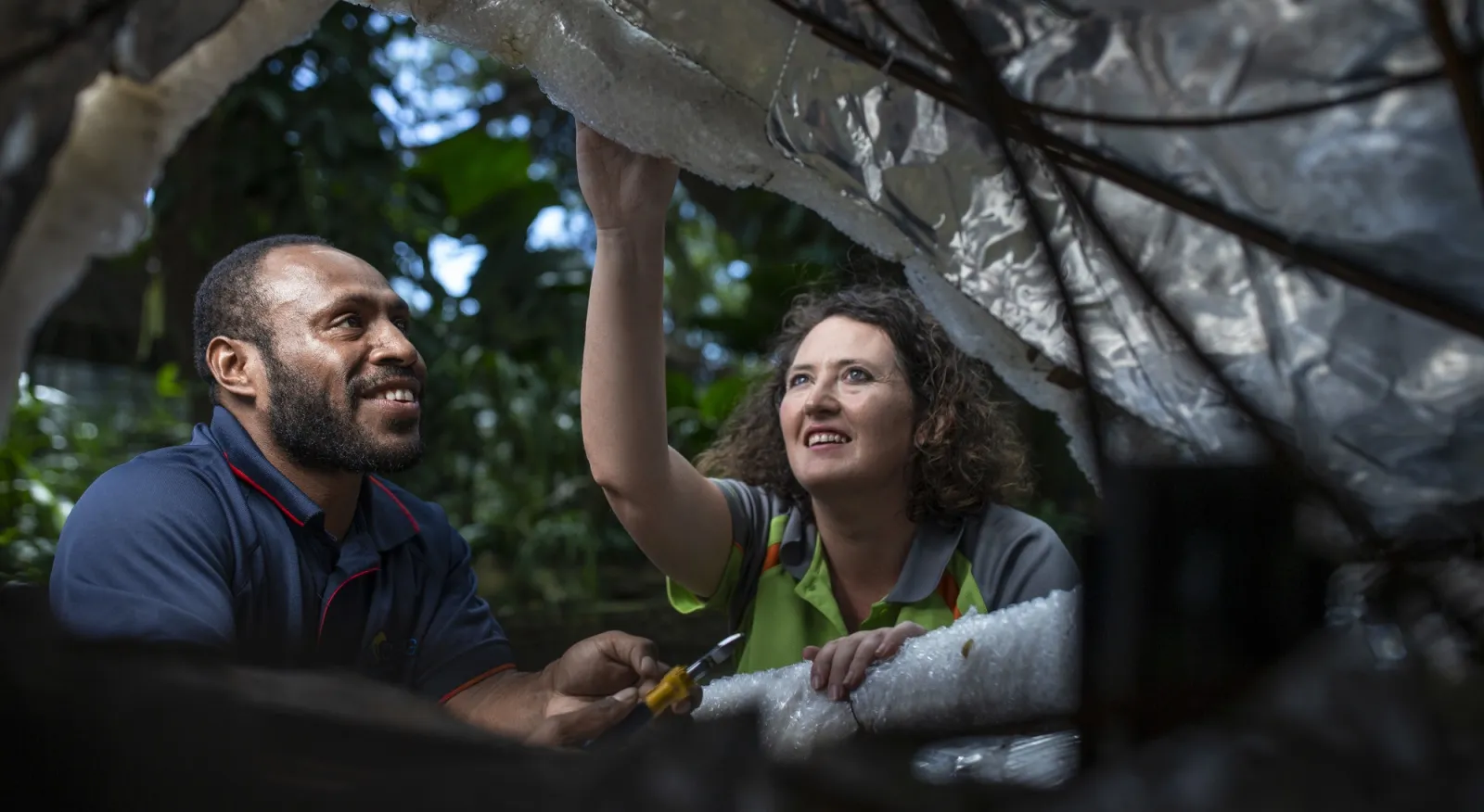Turning trash into treasure in Papua New Guinea
How an Australian volunteer supported the Port Moresby Nature Park to tackle plastic waste through a unique sculpture exhibition.

Australian volunteer Jessica Lumb took her skills as an artist, curator and events manager to the Port Moresby Nature Park, working on one of the greatest projects of her career. In her words, here’s Jess’s story.
Plastic pollution is an issue all across the world but it’s a really big issue in Papua New Guinea, especially in Port Moresby, as there are limited recycling facilities.
When it rains, the rubbish on the ground blocks up the drains and all the streets flood, and waste gets washed into the ocean.
My first big objective on my assignment was a sculpture festival at the park called the ‘BSP Trash to Treasure Sculpture Festival’. The goal was to educate park visitors on the issues of plastic pollution and waste management.
Our aim was to try and change people’s mentality about rubbish, and make them aware of how much waste is generated in Port Moresby. We wanted to inspire visitors to make good choices – by choosing products that either have less plastic packaging or that have packaging that is possible to recycle in PNG.
We wanted people to rethink their rubbish, and what else they can do with their waste, rather than just throw it away.
I spent four months collecting rubbish from around Port Moresby. We did two big community clean-ups at Ela Beach – the main beach in town. I worked with some community groups who do voluntary rubbish clean-ups, running awareness sessions, and got waste from them.
I worked with schools, then they collected rubbish for me and sorted out the plastics. We worked with some of the big hotels and did a call-out on social media. A lot of people brought their plastic waste to the park, so we became a mini recycling centre.
In the end we got so much waste - too much in fact! But that meant we had a good selection to build the sculptures from.
We engaged a local artist who works with recycled metal and likes this concept that everything can be reused. He built big basic steel sculpture frames of different marine animals - we wanted the sculptures to reflect how plastic waste affects marine animals in particular.
I worked with a professor at the University of Papua New Guinea, who helped me source volunteer students who started attaching all the rubbish to the sculpture frames.
Once all the rubbish was in the park we had volunteers come in and just clean everything. They devised a system of washing, rinsing, soaking and scrubbing, and then they sorted it all into different types of plastics.
Right at the end, we had two weeks until the launch and two animals still to build. I was a bit stressed - and then 11 volunteers turned up, and we managed to just smash out two giant sculptures in two weeks!
It was incredible to see the sculpture festival all come together at the end.
I loved seeing people’s reactions as they discovered the sculptures. Like when they come round a bend and see four giant jellyfish suspended in the trees!
I’m a visual artist and I have a studio back home. I’m always working on different creative projects. Out of all the projects I've ever done, this is the one I am most proud of. Because it involved so many people and has had such an impact. We also managed to pull it all off in four months.
The festival ran for six weeks and we had just over 16,000 visitors to the park in that period.
After the festival, I met two people outside of the park who were heavily impacted by the festival: one started making and selling jewellery from old plumbing supplies lying around his house, giving him an income he hadn't had before; the other a young artist who moved from painting to making collages from rubbish he found on the street, which had strong environmental messages.
Life in Port Moresby
Life in Port Moresby has its ups and downs. I struggled a lot when I first arrived: I didn’t know anyone and it was hard to meet people.
But after a little while I loved it – I developed a really good group of friends and figured out things I could do out of town. There is plenty of good food and places to go and eat out.
I’ve also learnt a lot about the country and culture, which has been amazing, because PNG is one of our closest neighbours and I knew very little about it before I came.
There are so many cool things you can do that are just out of town, like little islands you can visit and go snorkelling, and hikes in the mountains.
Papua New Guinea has its challenges, absolutely – but it is overall an amazing country.